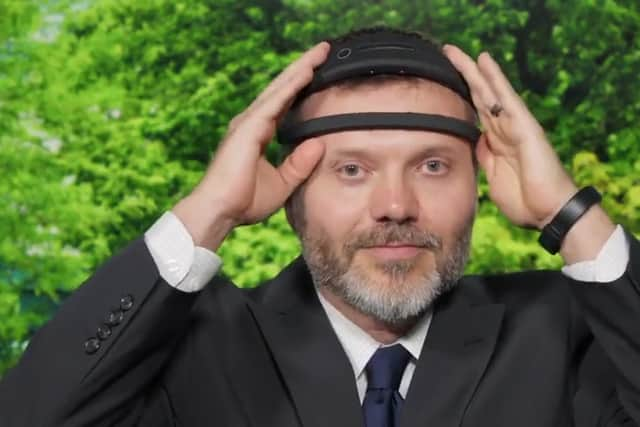Scientists develop headband that can detect the earliest stages of Alzheimer’s disease whilst you sleep
and live on Freeview channel 276
Scientists have developed a headband that can detect early signs of Alzheimer’s disease whilst you sleep. It monitors brain waves and can flag up signs of the disease years before a diagnosis.
It has been described as a fitness tracker for the brain, and can pick up the disease at the earliest stages, before any symptoms are present. Researchers say it is an ‘exciting step’ towards using wearables as digital biomarkers for disease detection.
Advertisement
Hide AdAdvertisement
Hide AdThe study from researchers at University of Colorado Anschutz Medical Campus and Washington University in St. Louis and published in the journal Alzheimer’s & Dementia is the largest of its kind to date.
During its development, the team used electroencephalography (EEG) from the headband, which detects brain wave patterns related to memory reactivation in sleep.
The results show a relationship between EEG readings and levels of specific molecular changes indicative of pre-symptomatic Alzheimer’s disease. Further findings from the research show that early stages of mild cognitive impairment due to Alzheimer’s disease can be detected in the EEG signals.


Dr Brice McConnell, assistant professor of neurology at the University of Colorado School of Medicine and study senior author said: “This digital biomarker essentially enables any simple EEG headband device to be used as a fitness tracker for brain health.
Advertisement
Hide AdAdvertisement
Hide Ad“Demonstrating how we can assess digital biomarkers for early indications of disease using accessible and scalable headband devices in a home setting is a huge advancement in catching and mitigating Alzheimer’s disease at the earliest stages.”
Comment Guidelines
National World encourages reader discussion on our stories. User feedback, insights and back-and-forth exchanges add a rich layer of context to reporting. Please review our Community Guidelines before commenting.
